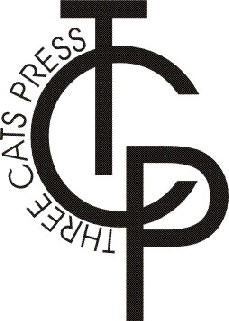





The author

To order
School Story is published by Three Cats Press, and can be ordered online.

Read selected excerpts from School Story.
Three Cats Press
About Iain Mackenzie-Blair, author of School Story.
Aultgrishan, Wester Ross,
IV21 2DZ.
IV21 2DZ.
Excerpts
pressed hard with his right, followed it by another left step. Back once more on his original tack, he simply lengthened his stride and accelerated. Realising he had been bluffed, Lightman miraculously retained balance, but Ellerman had melted from his reach.
It all happened so quickly, that at first it seemed to the watchers as if Ellerman had run straight into Lightman’s arms; they sensed, rather than saw, the double-footed jink. Then they saw Lightman half on one knee, with Ellerman still up and going towards midfield. The lone voice screamed frenziedly, ‘BLOOD-Y MARRRR-VELLOUS ANSELL’S!’ This time it was not followed by shouts and cheers, but continuous, respectful clapping like that accorded to an established soloist at a concert. Ellerman, alone of the players to retain a pristine cleanness, touched the ball almost demurely between the posts as if in acknowledgement of the applause.
†
Nevertheless it became clear after the first ten minutes that it was, in truth, a Hollywood saga of unsurpassed sentimentality. Set at the end of the previous century, its complex plot involved true love, mistaken marriage, early death and an almost-forfeited inheritance. Two major stars managed to conceal any merit or genuine emotion that may have resided in the script, behind rapid, stilted, dialogue and clipped accents. Far more damaging, they utterly failed to cope with competition from the child star whose curly hair, melting eyes and angelic demeanour had reduced the matrons of two continents to copious tears.
His effect on the Castonian audience however, was very different. Despite a certain restiveness, the School remained in a state of guarded, if restrained, politeness until a tear-jerking scene in which the helpless ward (consigned by his crooked, unfeeling, guardian to a boarding school of unremitting harshness) sang Ave Maria in the school chapel so movingly that even the unbendingly stern clergyman-headmaster dedicated to never-spoiling-the-child-by-sparing-the-rod, furtively dabbed his eye. After this, there were subdued, but increasingly unmistakable, Castonian murmurs of approval at each new misfortune which befell the tear-jerking little hero.
However, even these comments remained relatively decorous until the climax of the film where, having rescued the most persistent and cruellest of his boy tormentors from a flooded river, the child star lay at death’s door with pneumonia, motionless in a sparsely furnished garret to which he had been banished (vigorous Castonian cheers!) most unjustly, tended by the only person at the school to have shown him any sympathy. She was an amply proportioned negress who sat mopping his brow and clasping the small fevered hand lying wanly on the sheets. During an ominously dramatic pause in the syrupy background music, eyes brimming, she murmured in a low, throaty voice, ‘Wid dat heavenly voice o’ yours, ah always noo you wasn’ long fer this worl (SIGH) mah Angel Chile.’
It was received with stunned incredulity. Then, the momentary silence which preceded a fresh surge of gospel-choir music, was broken by a beautifully modulated, well-bred voice from the back, pronouncing each word quietly but very distinctly.’
‘And about bloody time too!’
An explosion of laughter erupted all over the hall, dissolving the last remaining restraint which had governed the, audience until then.
The final ten minutes of the film were accompanied by other